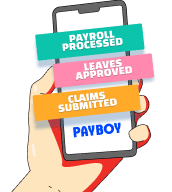Understanding salary in lieu of notice is important for both employers and employees in Singapore. This article delves into this concept, explaining its mechanics, key considerations, and potential implications to ensure a smooth and fair termination process within your organisation.
What is a salary in lieu of notice?
In Singapore, a "salary in lieu of notice" (also known as notice pay) is a payment made by an employer to an employee when employment is terminated without the employee serving a notice period as required by the employment contract.
Who can terminate employment without notice?
Either the employer or the employee may terminate a contract without waiting for the notice period to end.
When does the termination without notice happen?
Termination without notice can happen in the following situations:
Termination due to breach of employment terms
As an employee, you can leave without notice if the employer fails to pay your salary within 7 days of it being due. However, you should check with your employer to see why payment hasn’t been made before deciding whether to leave.
As an employer, you can terminate employment without notice if your employee is:
- Absent from work continuously for more than 2 working days without approval and a good excuse.
- Absent from work continuously for more than 2 working days without informing and attempting to inform you of the reason.
Termination due to changes to terms and conditions of work
The employer cannot change the terms and conditions of employment without the employee's consent. If the employee does not agree to the changes, he/she should negotiate with his/her employer for an agreement that is acceptable to both.
If there is no agreement, either party may choose to end the contract by serving the notice period.
Can an employee leave without notice?
Yes, the employee can leave without notice if the employer has breached the terms of employment, for example, fails to pay his/her salary within 7 days of it being due.
However, before making a final decision, the employee should contact his or her employer to determine the reasons for the late payment and whether the regular payment schedule can be resumed.
How much does an employer have to pay when asking an employee to leave without serving their notice period?
The employer must pay the employee's salary in lieu of notice, which is equal to the amount the employee would have earned during the required notice period.
The employer must also pay the employee his/her final salary on the last day of work or within 3 working days from the date of employment termination.
Note: If the termination is due to misconduct, the employer may terminate the employee's employment without giving notice. The employer is not required to pay a salary in lieu of notice.
How do I calculate my employee’s salary in lieu of notice in Singapore?
The amount of salary in lieu of notice is typically equivalent to the employee's salary for the unserved notice period.
The formula is as follows:
(Monthly gross rate of pay) / (Number of working days per month) x (Number of unserved notice days)
Example:
Alan’s monthly gross rate of pay is S$5,000. There are 21 working days in Feb 2024, and he resigned without giving 9 days' notice. Therefore, his salary in lieu of notice would be:
(S$5,000) / (21) * (9) = S$2,142.86
Is salary in lieu of notice taxable?
As stated by IRAS, salary in lieu of notice paid by the employer to the employee to compensate for early termination is taxable.
Is salary in lieu of notice subject to CPF?
CPF contributions are not payable on salary in lieu of notice from the employer to the employee. However, CPF contributions are still payable on the wages paid to the employee until the end of his or her employment.
In terms of the salary in lieu of notice paid by the employee, if the employer chooses to offset the compensation against the wages payable to the employee, CPF contributions are still due on the wages before the offset.
Tip: Learn more about CPF contributions and find answers to frequently asked questions in our CPF guide for employers.
Offboard your employees smoothly with Payboy HR software!
The transition to handover, document, and offboard an employee can be an adjustment period for both parties involved. If you're seeking an efficient way to streamline and document your employee offboarding processes, look no further. Payboy has got you covered with a comprehensive offboarding module within our system to help you keep the journey organised!
An employee may also leave your company before the last day of the month, which will result in an incomplete month of work. With our fully compliant, customisable, and integrated payroll processing module, you can automate the calculation of an incomplete month’s salary and also enjoy additional features that are designed to save you time and effort.
Streamline your HR processes with Payboy today!
As a PSG-approved HRMS, Payboy provides a robust system to help you manage your HR tasks so that you can focus on your business and people!
With our wide range of modules, you can customise a solution to meet the specific needs of your business:
Payroll Processing | Leave Management | Claims Management | Applicant Tracking | Time Attendance | Shift Scheduling | Appraisal System | Inventory Management | Project Costing | Training Management | Benefits





















